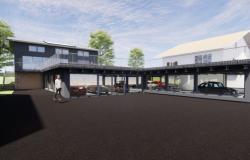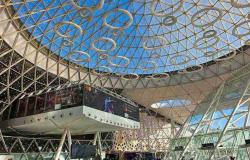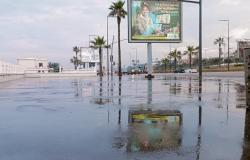Healthcare transformation relies on a delicate balance between innovation, accessibility and sustainability. It is by placing the patient at the heart of priorities and responding to the challenges of tomorrow that Morocco will be able to build a resilient ecosystem, capable of improving the quality of life for all.
The technological revolution that the health sector is experiencing is underway. Driven by digital innovations, advances in artificial intelligence and telemedicine solutions, a new ecosystem is emerging, placing the patient at the heart of priorities.
This transformation, as ambitious as it is necessary, paves the way for a more accessible, efficient and resilient system. But behind the promises of personalized and predictive medicine lie major challenges: inequalities of access, data protection and even cost control. Morocco, at the dawn of this transformation, positions itself as a strategic player in the continent, provided that it structures a sustainable and inclusive vision.
A necessary transformation in the face of contemporary challenges
Health systems across the world are under strain. Aging of the population, increase in chronic diseases and economic pressure require a fundamental overhaul of traditional approaches.
Morocco, like other developing countries, faces structural challenges, but also benefits from a unique opportunity, that of integrating innovations to accelerate access to care and improve the overall performance of its health ecosystem. .
Technological advances offer new levers to optimize care pathways. Whether it is the digitalization of medical records, the use of artificial intelligence for diagnosis or connected medical devices, modern tools make it possible to act upstream to prevent rather than cure. For example, the Moroccan platform DabaDoc makes it easier to make medical appointments online, bringing patients closer to healthcare professionals and reducing waiting times.
Morocco, which is experiencing significant development in its medical infrastructure, particularly with programs such as the generalization of medical coverage, has every interest in seizing this dynamic to build a sustainable, patient-centered system.
A patient-centered system
Today’s patient has become a central player in his or her care journey, thanks to a transformation that is based on several major pillars. The digitalization of care pathways, with centralized digital medical records which facilitate coordination between professionals and ensure rigorous monitoring of patients. For example, the Mohammed VI University Hospital in Marrakech has already launched a pilot project aimed at fully digitalizing medical records, thus improving patient monitoring and management.
In addition, the implementation of connected medical devices, which revolutionize the doctor-patient relationship by allowing home monitoring, proactive management of chronic diseases and reduction of complications.
In this sense, pilot projects in Morocco have introduced connected glucose sensors for diabetic patients, allowing better control of their sugar levels and reducing the risk of complications. Finally, personalized and predictive medicine, made possible by advances in biotechnology and diagnostic solutions, makes it possible to adapt treatments to the biological profile of each patient. Players like Roche Diagnostics Morocco play a key role in offering end-to-end solutions to optimize diagnostic systems and improve the early detection of serious diseases such as cancer.
These transformations offer major advantages, namely reduced waiting times, better quality of care and increased patient involvement in their health. But for this vision to come to fruition, it is imperative to respond to several structural challenges.
The challenges of sustainable transformation
Although technology is essential, it alone cannot ensure a resilient healthcare system without a structured strategy to address major challenges. This is about ensuring accessibility and inclusion so that innovations also benefit rural and remote areas, as demonstrated by telemedicine initiatives that connect remote centers to regional hospitals.
It is also a question of training health professionals for optimal mastery of new technologies. This is in addition to protecting health data through appropriate regulations, thus strengthening patient trust. And finally, meet the challenge of cost control by finding a balance between the investments necessary for innovation and the economic sustainability of the system.
A changing ecosystem: the role of the actors
To succeed in this transition, public and private actors are working hand in hand. The government plays a central role by establishing a clear regulatory framework and investing in basic infrastructure. Public-private partnerships, such as those developed for medical diagnostics, illustrate the potential for effective collaboration.
Technology and pharmaceutical companies provide innovative solutions to meet the needs of the field. Healthcare professionals are at the heart of the process, with ongoing support to adopt these new tools. Finally, patients, thanks to health education and the use of connected technologies, become active partners in their care.
Morocco as a regional model
Morocco has all the assets to become a regional hub for innovative health in Africa. Thanks to a strategic vision, strengthened collaboration between stakeholders and accelerated adoption of new technologies, the country can lay the foundations for a sustainable, inclusive and efficient health system. Ongoing reforms, supported by technological innovations, are paving the way for a model where the patient is at the center of concerns. An ambition which, if structured, could make Morocco an example to follow on the African continent.
Sanae Raqui / ECO Inspirations






